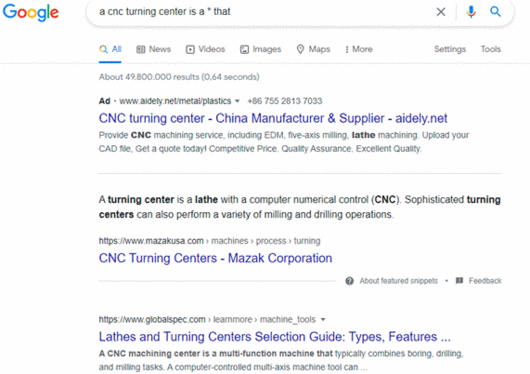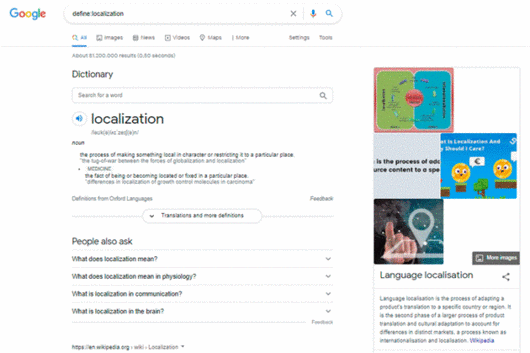Find out
Imagine you want to find a definition for the term localization to be included in a terminology database on translation and localization. You have different possibilities to search for a definition:
Search in existing glossaries or term bases
Sometimes the fastest and most efficient way to search on the Internet for term definitions is by searching them where it is most probable to find them: in term bases, glossaries and dictionaries (that you might already have bookmarked during your project preparation step).

Search for defining patterns using operators
If there are no online term bases or glossaries available for your subject field you can try searching for a definition using the operators mentioned earlier. For this purpose you have to think how definitions usually look like or in what pattern they typically occur. For example, terms are often defined as follows: A term is a …, a term comprises …, A term is defined as, Terms are…, A term is a machine that… These patterns can then be formulated as search patterns by substituting "term" with your term to be defined and the "…" with a placeholder (*).
If you are looking for the definition of e.g. a CNC turning centre you could enter the following query: "a cnc turning center is a * that".

Definitions in Google
To find a definition for a word or phrase in Google simply type "define," followed by a space, and then the term you want to be defined. If Google has seen a definition for this term on the Web, it will retrieve that information and display it at the top of your search results. Google also offers a special operator called define. Typing "define:" followed by the term with no space between them returns a list of definitions. For example, the search define:localization will show a list of definitions for "localization" gathered from various online sources (see screenshot).
Why is this information important for translators and translation teachers?
Searching for definitions is an important task to understand the meaning of a term to be translated and to find its appropriate equivalent in the target language. Often translators do not have paper dictionaries for every subject field at their disposal so a quick web search is a good alternative to quickly solve terminological problems.

